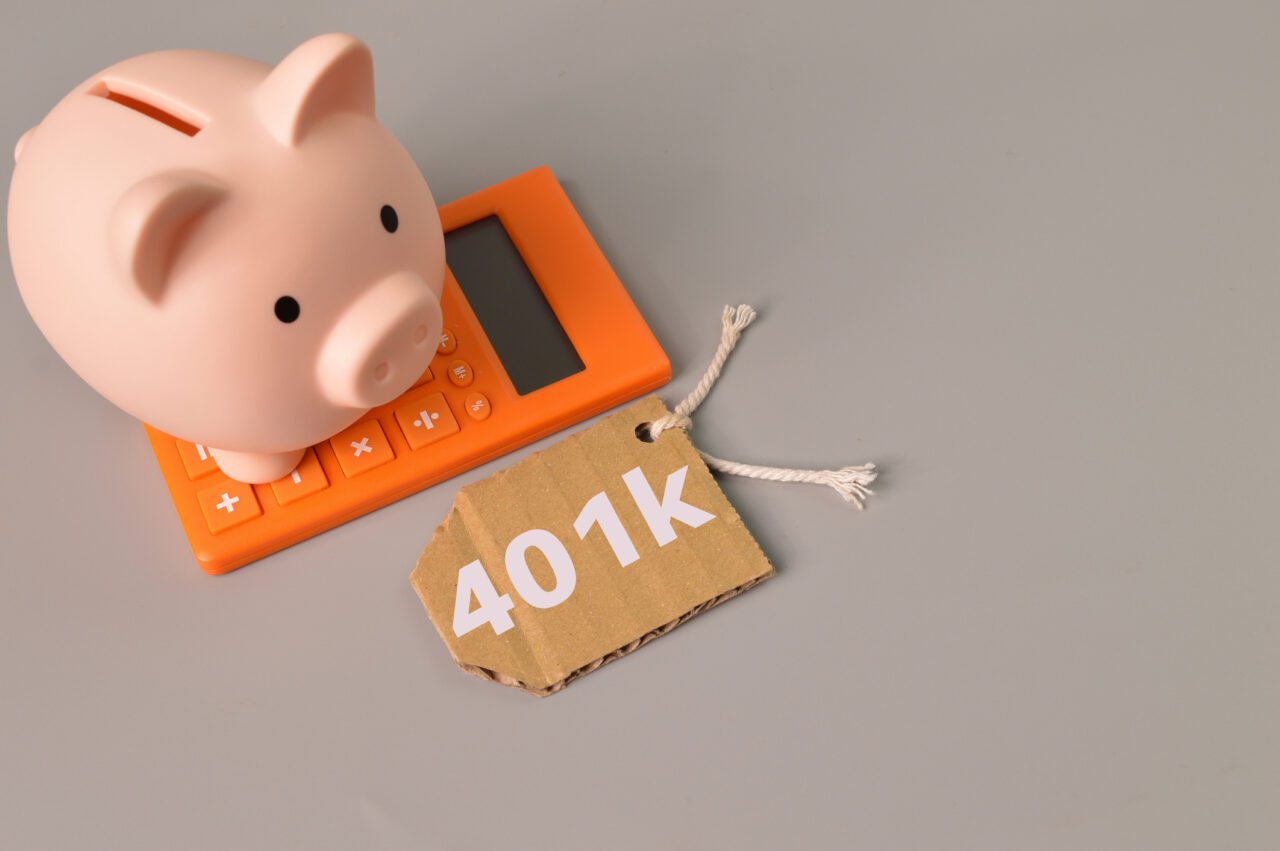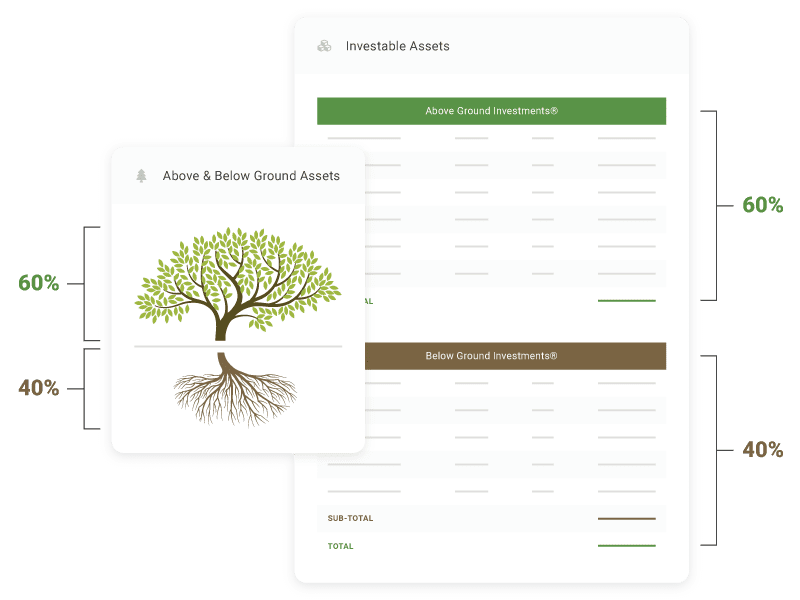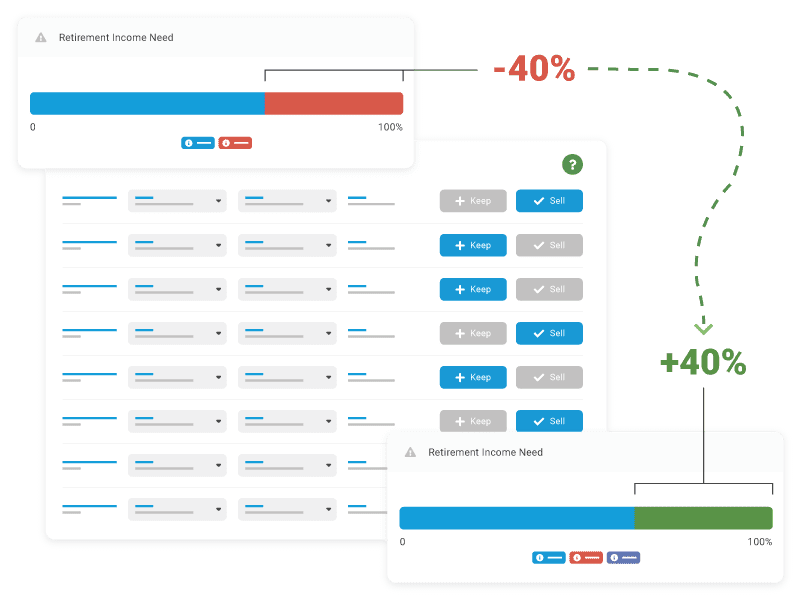As a Recession Looms Many Question
Their Retirement Decisions
72% of Economists Predict a Recession Next Year — If We’re Not Already in One. If you’re like most people, you probably have some questions or concerns about your overall financial health, especially given the state of the economy. While we all hope we aren’t heading into the next great recession, it’s still a concern many of us will have to deal with. From oil prices to wondering about the health of our retirement savings plan. Chances are you might be even asking, should I continue investing in my 401k during a recession? The answer, to put it simply, is yes.
What is a 401k?
401k’s are investment accounts sponsored by your employer. The process is simple enough. Individuals can contribute money to an account from their paycheck, and their employer may also make contributions on your behalf. This financial asset is tax-deferred, which means you don’t pay taxes on the money you contribute or on the earnings from your investments until you withdraw the money in retirement.
401k’s usually have fees associated with them, which can include 401k account maintenance fees, investment management fees, and 401k loan fees. When deciding whether or not to invest in a 401k, you should consider how much risk you’re willing to take, how much money you need to save for retirement, and whether or not you’re comfortable with your assets.
What Happens When the Stock Market Declines?
When the stock market declines, it can have a ripple effect on many aspects of the economy including a recession. When the stock market falls, it’s usually because investors are worried about the future of the economy. This can lead to a decrease in consumer spending, which can lead to less economic activity and a decrease in demand for goods and services. This, in turn, can lead to layoffs and an increase in unemployment. As the unemployment rate increases, those without jobs are more likely to default on their loans, which can further hurt the economy.
While the stock market decline may not directly impact 401ks, it can indirectly affect them through other economic factors. For example, if fewer people are working, that means there will be less money going into 401ks. Additionally, when the stock market falls, it often leads to a decrease in interest rates. This is because the federal reserve bank typically lowers interest rates when there’s an economic downturn in order to stimulate economic activity. Lower interest rates can mean less growth for 401ks since they tend to be more reliant on investment income than other types of retirement accounts.
However, it’s important to remember the stock market doesn’t always go down during an economic recession. Sometimes it goes up as investors seek out safe havens for their money. Additionally, while lower interest rates may hurt 401k growth in the short-term, they can help to spur economic recovery in the long-term by making it cheaper for businesses to borrow money and invest in expansion. Ultimately, many other factors play a role in determining how much your account will grow over time.

How much should I save in my 401k_Kaizen Wealth
How Much Should I Save in My 401k?
Schwab Retirement Plan Services conducted a survey that showed many workers think they’ll need an average of $1.7 million for retirement. This number is down from what it was in 2021 – $1.9 million. A common rule of thumb, however, is to set aside at least 10% of your gross earnings as a start. You can read more about how to get started with retirement planning and if you’ve been investing enough, reading our article Retirement: Have You Been Investing Enough. This article has some easy tips for individuals on how to increase their savings.
When it comes to personal finance, one of the most common questions people ask is how much they should save in their 401k. The answer, unfortunately, is not always clear-cut. It depends on a number of factors, including your age, your income, and your retirement goals. However, there are some general guidelines that can help you get started.
If you’re in your 20s or 30s, you’re still in the early stages of your career. As a result, you may not have a ton of spare cash to put into savings. That’s perfectly understandable. But even if you can only afford to contribute a few hundred dollars each month, it’s important to start building up your retirement savings now. The earlier you start saving, the more time your money has to grow.
Of course, how much you ultimately need to save will depend on what kind of lifestyle you want in retirement. If you’re hoping to retire as soon as possible and live off your investments, you’ll need to save more than someone who plans on working until they’re 70. There’s no magic number that applies to everyone – it’s important to figure out what works for you and your individual circumstances.
Continue Investing in 401k Despite a Recession
Even with all of the talk about recession, it’s still critical to invest in your retirement. Why? You’re choosing to continue to invest in your future self. While it may be daunting to see your account take a hit as the stock market is in a volatile state (i.e. a bear market or a bull market), you’re still choosing to put money aside for your retirement.
Another beneficial reason to choose to continue investing during a recession is it can actually be beneficial. For many investors, it’s an opportunity to buy low and sell high later. As time goes on, and as the economy recovers, the stock market will also recover which will help you to maximize your earnings.
The Long-Term Benefits of 401k
When it comes to retirement planning, the long-term benefits of a 401k always outweigh any short-term economic downturns. Even though the economy and the world stock market may fluctuate in the short term, over the long run they have always trended upwards. This means that if you are investing in a 401k or IRA, you will come out ahead in the end. Of course, this is not to say that there are no risks involved in retirement planning. But by diversifying your portfolio and working with a financial advisor to optimize your retirement plans, minimize these risks and maximize your chances of a comfortable retirement.

Continue Investing Even During a Recession_Kaizen Wealth
Are There Economic Benefits of Continuing to Invest?
The simple answer is yes – there can be economic benefits to continuing to invest in your retirement, even during a recession. One of the key benefits is that it can help to spur economic growth. When businesses and consumers have money saved, they’re more likely to spend it, which can help to stimulate the economy. Additionally, continuing to invest can help to create jobs. This is because businesses often use investment money to expand their operations and hire new employees.
Additionally, there are personal benefits to continuing to invest in your retirement during a recession. For example, if you’re close to retirement, investing during a recession can help you to maximize your earnings. Additionally, continuing to invest during a recession can help you to reach your retirement goals sooner. This is because even though your account balance may go down in the short-term, it will likely rebound over time as the economy recovers.

ways to continue saving during a recession_Kaizen Wealth
Ways to Continue Saving for Retirement During a Recession
We all know recessions can be tough on everyone’s finances and it may seem like a risk to continue spending precious dollars from your income on your retirement. But just because the economy may appear to be taking a downturn that doesn’t mean you have to give up on your long-term savings goals. Here are a few ways to diversify your portfolio and continue saving during a recession:
Invest in stocks and bonds
This may seem counterintuitive, but investing in stocks and bonds can actually be a smart way to weather a recession. Over time, stocks have outperformed other investments, so even if there is a short-term dip in the market, you will likely come out ahead in the long run.
Stay disciplined with your retirement plan
It can be tempting to cash out your retirement account during a recession, but this is usually not a good idea. Not only will you incur significant penalties, but you will also miss out on the compound interest that can help you reach your goals. Instead, focus on staying disciplined with your retirement plan and contributing as much as you can afford.
Consider real estate
Although the housing market can be volatile during a recession, investing in rental properties can actually be a smart move. Not only will you have the potential to earn income from rent, but you will also benefit from any appreciation
Put yourself on a budget
According to the Charles Schwabb survey, 79% of workers are changing their saving and spending habits. Changes in spending and saving habits they noted include: buying cheaper products, paying off their debt at a slower rate, and reducing the number of purchases they make.

stay the course during a recession_Kaizen Wealth
Stay the Course During a Recession
Unemployment is up, the stock market is down, and there’s a general feeling of economic insecurity in the air. However, it’s important to remember that recessions are a normal part of the economic cycle, and they eventually come to an end. While it may be tempting to panic and make rash decisions with your investment portfolio, it’s important to stay focused on your long-term goals. Selling off all of your investment assets may seem like a good idea in the short-term, but it could have dire consequences for your financial future.
How Can Selling Off Assets Harm Your Retirement Plan?
1. You may trigger a taxable event.
2. You could miss out on the market rebound.
3. You may lose the ability to take advantage of employer matching contributions.
4. You may damage your long-term financial security.
These are just a few reasons why individuals should continue investing in their 401k, and your retirement plan. Doing this will help you ride out the recession by staying the course of your investment strategy. In the long run, you’ll be glad you did.

Ask a financial advisor for 401k advice_Kaizen Wealth
Ask a Financial Expert
A 401k is a powerful investment tool, but it can be difficult to navigate during a recession. That’s when many people turn to financial experts for help. But how do you know when you need help with your savings plan? And how can you find a reputable financial expert?
Here are a few signs that it might be time to seek professional help with your 401k:
- You’re confused about your investment options.
- You’re not sure how to adjust your investment mix in light of current market conditions.
- You’re behind on your retirement savings goals.
- You’re considering taking distributions from your 401k.
- You’re thinking about rolling over your 401k into an IRA or annuity.
If any of these apply to you, it might be time to ask for help from a financial expert. For those who don’t already have a wealth manager assisting them, here at Kaizen Wealth we suggest you for some research to find someone who is reputable, read our article about How to Pick the Right Financial Advisor for You and choose someone who has experience helping people in your situation. With the right guidance, you can stop asking, should I continue investing in my 401k during uncertain times and make sure your 401k is working hard for you, even during a recession.



